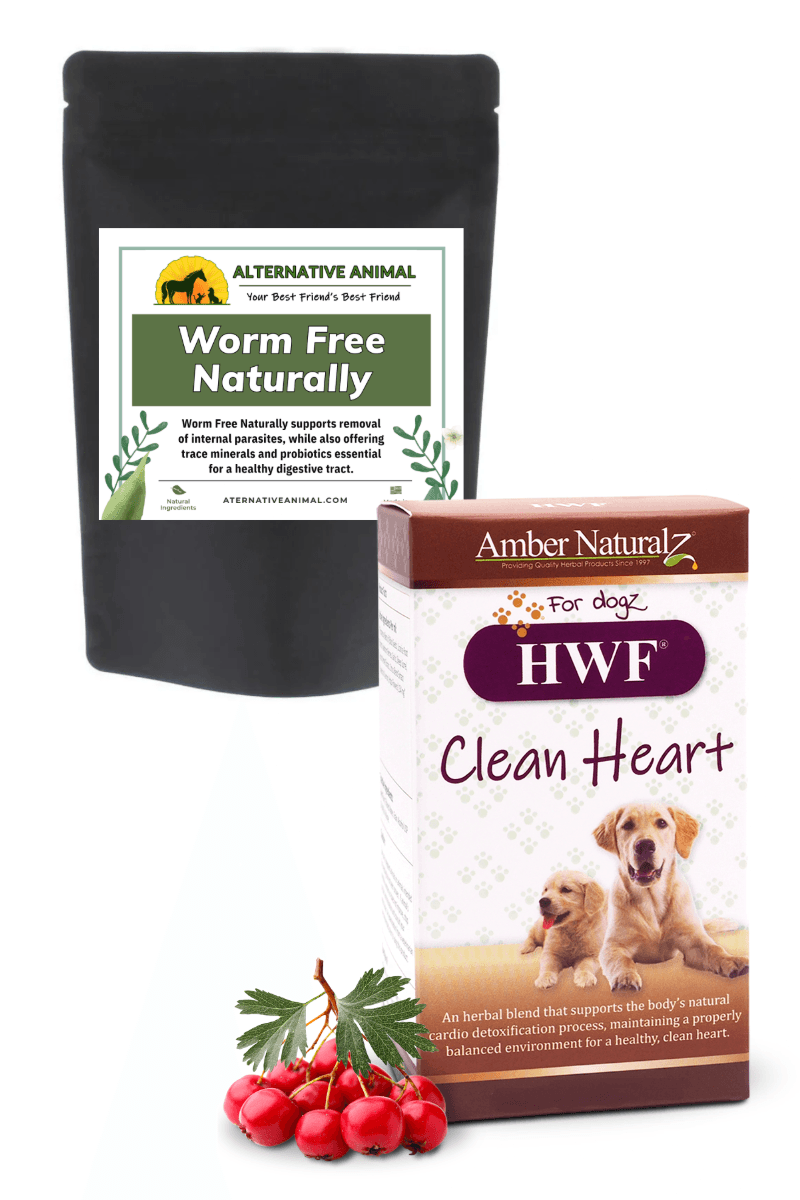Heartworm disease is a serious parasitic infection affecting the circulatory system of dogs, though it can also impact cats. While conventional medications are the primary method for prevention and treatment, natural therapies can play a supporting role in reducing a dog’s risk and minimizing side effects from conventional treatments. Understanding the difference between infection and disease is crucial for effective management.
Understanding Heartworm
Heartworm is transmitted through mosquito bites. The parasitic worms mature in the heart and lungs of infected dogs, eventually leading to significant health complications if left untreated. Dogs can have a heartworm infection without showing symptoms, but those with heartworm disease exhibit clinical signs and require more careful management.
Traditional Prevention and Treatment
The veterinary community currently recommends monthly heartworm preventive medication for all dogs. The necessity and duration of this preventive depend on the geographic location and prevalence of heartworm in the area. It is essential to consult with your veterinarian to determine the appropriate preventive regimen for your companion.
Commonly prescribed oral medications contain ivermectin or milbemycin. Holistic veterinarians often favor oral preventives over topical spot-on treatments because the medication is cleared from the dog’s system more quickly. The dosage for preventing infection is very small, making these medications generally safe.
Conventional treatment for active heartworm infections involves Immiticide (melarsomine), a potent injectable medication administered under veterinary supervision. While safer than older arsenic-based treatments, it requires careful administration due to potential side effects.
Exploring Natural Approaches
While anecdotal evidence suggests that certain herbs like garlic, black walnut, and wormwood, along with homeopathic nosodes, may offer preventive or therapeutic benefits, robust scientific proof for their efficacy in reliably preventing or treating heartworm infection is still limited. Proving the effectiveness of natural remedies requires rigorous scientific protocols, similar to those used for conventional medications, which involve controlled studies with large groups of dogs.
Reducing the Risk and Supporting Treatment
Despite the lack of definitive proof for natural cures, several natural strategies can help reduce a dog’s risk of developing heartworm infection or support their health during conventional treatment:
- Boost Overall Health: Implementing a healthy diet, reducing vaccination frequency, and supplementing with antioxidants and omega-3 fatty acids can improve a dog’s overall health, making them less susceptible to developing severe heartworm disease.
- Regular Veterinary Care: Routine veterinary visits and blood tests allow for early diagnosis, which is critical for successful treatment and preventing the infection from progressing to disease.
- Mosquito Control: Limiting exposure to mosquitoes is key. Natural methods such as using citrus oils, cedar oils, and diatomaceous earth can help control mosquito populations around your dog.
- Supportive Therapies: For dogs undergoing conventional treatment, herbs like milk thistle and homeopathics such as berberis may help minimize toxicity from medications and dying heartworms, supporting the dog’s immune system and aiding detoxification.
In practice, a combination of monthly oral heartworm preventives, a natural diet, appropriate nutritional supplements, and a minimized vaccination schedule can be highly effective in preventing heartworm infection. For dogs diagnosed with heartworm disease, integrating conventional treatment with nutritional support, herbs, and homeopathics can significantly aid their recovery by bolstering their immune systems and helping their bodies manage the byproducts of treatment.
References:

